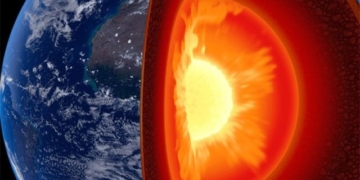Scientists have discovered that some cancer cells use bacteriophages as their food source – a type of virus that preys on bacteria found in the human body.
According to scientific experts, the human body is home to billions of organisms, including bacteria, viruses, and unicellular organisms. Depending on the characteristics of each organism, they can be beneficial, harmful, or neutral to the functioning of our bodies. Until recently, scientists believed that bacteriophages only existed within our bodies and had minimal interactions with them.

Bacteriophages are viruses that can parasitize bacteria and destroy them. (Illustrative image: Sputnik)
Microbiologist Jeremy Barr from Monash University in Melbourne, Australia stated: “For a long time, we have thought that bacteriophages do not interact with mammalian cells. This is completely incorrect.”
In an article published in PLOS Biology, a journal by the Public Library of Science, Barr wrote: “Mammalian cells take in bacteria and use them as a food source to enhance cell growth and survival.”
Their findings emerged from an experiment in which scientists placed cancer cells from both humans and dogs in an environment teeming with a specific bacterium, T4, which feeds on E. coli. While the scientists were investigating what proteins the cells were producing in response to protect themselves from the bacteria, they observed signs of growth in the cells, including preparations for division.
“The cells infected with bacteriophages actually grew at a faster rate. This indicates that the cells are using the bacteriophages as a food source.”
| Bacteriophages are viruses that can parasitize bacteria and destroy them. They have been used for decades as an alternative to antibiotics. Previously, phage therapy was widely implemented in the Soviet Union. By the 21st century, Western medicine caught up, discovering the benefits of bacteriophages in controlling bacterial infections not only in humans but also in food. |


















































